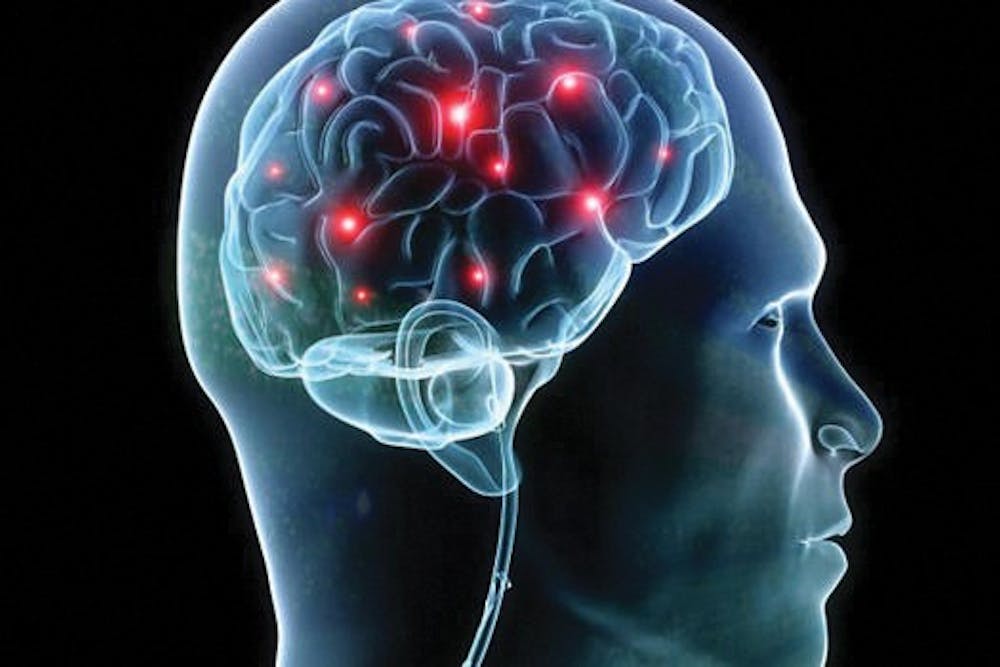
Allan Ajifo / CC 2.0
College sophomore Michael Duong and College sophomore Tiberiu Mihaila were awarded the Goldwater Scholarship in recognition of their work in Alzheimer's and Parkinson's research, respectively.
Two Penn sophomores making strides in disease research recently won a prestigious prize for excellence in science and math.
The Goldwater Scholarship is awarded each year to students around the country who intend to earn a doctorate and pursue a research career in math, engineering or the natural sciences. This year the prize was awarded to College sophomores Michael Tran Duong and Tiberiu Mihaila.

Michael Tran Duong has always enjoyed engaging in scientific research.
“When I was six or seven years old, I was interested in the theory of relativity and how DNA works,” he said. “I was really interested in making gadgets and trying to solve problems.”
Duong recalled a time as a child when he attempted to separate a chemical mixture in a tube by running around and trying to simulate the force of a centrifuge.
In middle and high school, he became involved in science fairs. Recognizing the increasingly prevalent issue of resistance to antibiotics, he began growing bacteria and testing it for antibiotics in his basement during eighth grade.
He eventually transitioned from his basement to a real lab, and received recognition at the 2014 International BioGENEius Challenge after conducting research on using the probiotics in yogurt as a potential alternative to antibiotics.
Currently working in Penn’s 3-D epigenomes and neurobiology lab, he plans to eventually become a physician-scientist, studying the genetics and neuroimaging of Alzheimer’s disease.
Alzheimer’s is a personal matter for Duong, because his grandfather was diagnosed a few years ago.
“The loss of memory and dignity really affected my family and me, and I wanted to try to make an impact in the way that I could, which is scientific research,” he said.
His main focus is understanding how the gene works and what causes the disease, “so that one day [he] can hopefully try to treat it.” He is currently studying the development of the brain.
“The idea is that if we first understand the healthy brain, we can then possibly see what happens when things go awry,” he said.

Tiberiu Mihaila’s research also focuses on understanding disease. However, his work in Penn’s chemistry department primarily deals with Parkinson’s disease.
Mihaila described his research as a combination of fluorescence, photochemistry and cell culture-based Parkinson’s disease models to study toxicity and disease.
He, too, was interested in science from a young age, taking online science classes during elementary and middle school and then signing up for Science Olympiad.
As a student in the Vagelos Scholars Program in the Molecular Life Sciences, Mihaila has a strong interest in biophysics and biochemistry.
“The way I rank my time is that lab and classes are the most important,” Mihaila said. He is also involved in several clubs at Penn, one of which is Science Olympiad. Through this club, he helps host science tournaments for high school students.
“It’s a good way to give back to Science Olympiad since that’s kind of what got me interested in science,” he said.
Mihaila’s plan is to get his M.D./Ph.D. He believes this combination will help him to develop new treatments for neurodegenerative diseases — an M.D. will allow him to practice medicine and a Ph.D. will provide proper scientific training.
Mihaila and Duong both thanked their professors and research mentors at Penn for their support and guidance.
The Daily Pennsylvanian is an independent, student-run newspaper. Please consider making a donation to support the coverage that shapes the University. Your generosity ensures a future of strong journalism at Penn.
Donate







